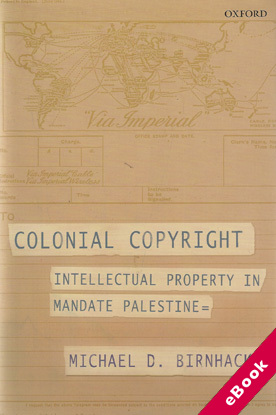
The device(s) you use to access the eBook content must be authorized with an Adobe ID before you download the product otherwise it will fail to register correctly.
For further information see https://www.wildy.com/ebook-formats
Once the order is confirmed an automated e-mail will be sent to you to allow you to download the eBook.
All eBooks are supplied firm sale and cannot be returned. If you believe there is a fault with your eBook then contact us on ebooks@wildy.com and we will help in resolving the issue. This does not affect your statutory rights.
When the British Empire enacted copyright law for its colonies and called it colonial, or Imperial, copyright, it had its own interests in mind. Deconstructing the imperial policy regarding copyright offers a startling glimpse into how this law was received in the colonies themselves.
Offering the first in-depth study from the point of view of the colonized, this book suggests a general model of Colonial Copyright as it was understood as the intersection of legal transplants, colonial law, and the particular features of copyright, especially authorship.
Taking as a case study the story of Mandate Palestine (1917-1948), the book details the untold history of the copyright law that became the basis of Israeli law, and still is the law in the Palestinian Authority. It queries the British motivation in enacting copyright law, traces their first, indifferent reaction, and continues with the gradual absorption into the local legal and cultural systems.
In the modern era copyright law is at the forefront of globalization but this was no less true when colonial copyright first emerged. By shining a light on the introduction and reception of copyright law in Mandate Palestine, the book illuminates the broader themes of copyright law: the questions surrounding the concept of authorship; the relationship between copyright and the demands of progress; and the complications of globalization.